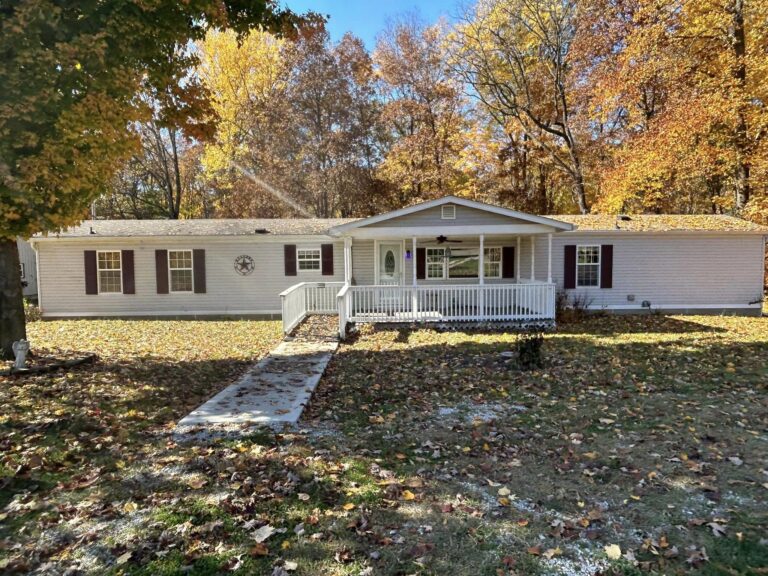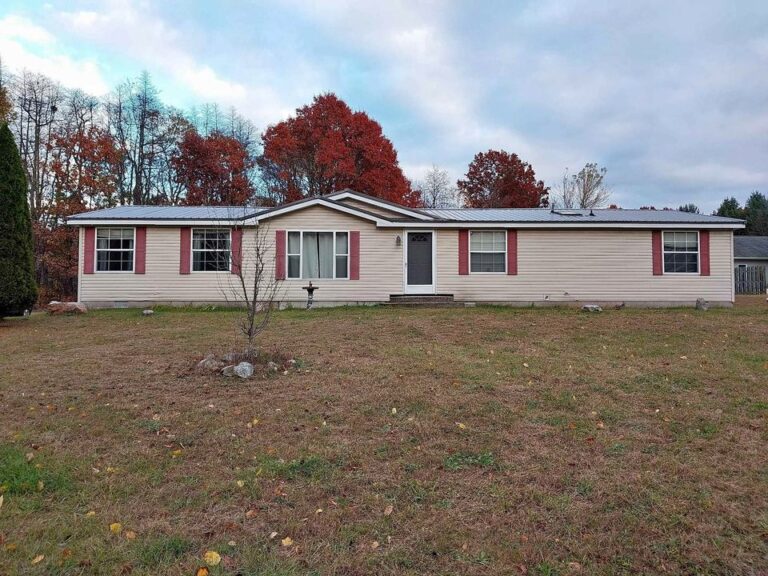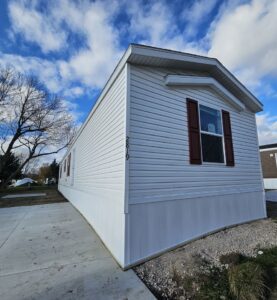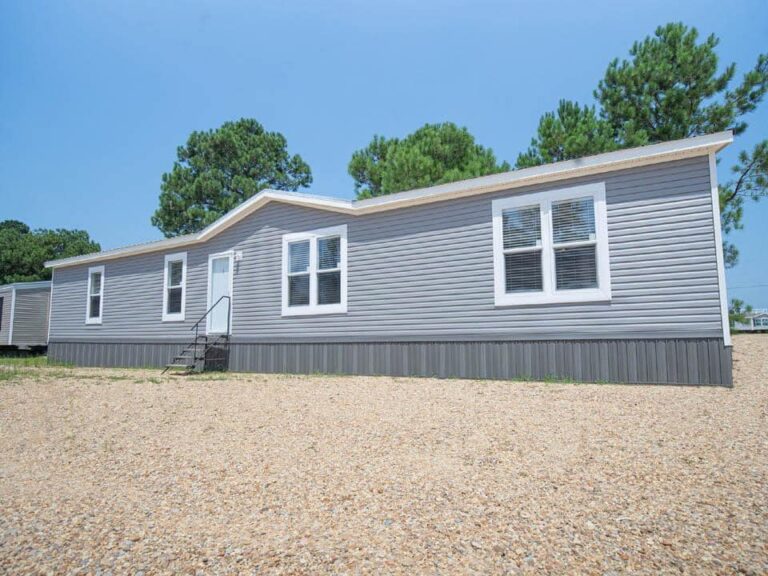Manufactured homes are a popular housing option for many buyers. Understanding the factors that contribute to the appreciation of manufactured homes is essential. This article explores whether manufactured homes appreciate in value over time. With the increasing number of families choosing this type of housing, it’s important to study if these properties can provide long-term financial protection and a sense of community. By delving into indexes, elements, and examples, we aim to uncover whether these homes have the potential to appreciate similarly or differently from traditional site-built houses. Join us as we examine how space, foundation type, and location state play a role in determining the appreciation rate of manufactured homes in this article Do Manufactured Homes Appreciate in Value?
Understanding Manufactured Homes
Location plays a significant role in the appreciation of manufactured homes. A home situated in a desirable neighborhood or area with good schools, amenities, and low crime rates is more likely to appreciate in value over time. On the other hand, if the home is located in an area with declining property values or limited access to essential services, its appreciation potential may be hindered.
Upgrades and renovations can significantly increase the value of a manufactured home. For instance, modernizing the kitchen and bathrooms, adding energy-efficient features like solar panels or upgrading the HVAC system can enhance both the functionality and aesthetic appeal of the home while boosting its overall value. Investing in landscaping improvements and outdoor living spaces also contributes to increased appreciation potential.
The overall condition and maintenance of a manufactured home play a crucial role in its appreciation potential. Regular upkeep such as roof maintenance, exterior painting, plumbing repairs, and keeping up with general wear-and-tear issues are essential for maintaining or increasing property value over time.

Investment Potential
Pros and Cons
Manufactured homes have the potential to appreciate in value over time, making them a viable investment option. One of the main advantages of manufactured homes is their affordability compared to traditional site-built homes. This means that individuals who may not be able to afford a conventional home can still invest in a manufactured home as an asset.
The construction process of manufactured homes allows for faster completion times, which can also contribute to their investment potential. However, it’s important to consider the limited customization options and potential stigma associated with these types of properties as potential drawbacks. Despite this, many people are attracted to the cost-effective nature of manufactured homes and recognize them as valuable investments for the future.
Market Trends and Do Mobile Homes Appreciate in Value?
Understanding market trends is crucial when evaluating the appreciation potential of manufactured homes. In recent years, there has been a steady increase in demand for these types of properties, indicating a positive outlook for their future value appreciation. Keeping abreast of current market conditions is essential for making informed decisions about purchasing or investing in a manufactured home.
Market trends play a significant role in determining how much value will be attributed to these properties over time. As more individuals seek affordable housing options, especially those that offer both quality and long-term value, manufactured homes become increasingly attractive as investment opportunities.
Financing Impact
The type of financing obtained plays an essential role in influencing the long-term value and appreciation potential of manufactured homes. Understanding how different financing options impact future land values is crucial when considering purchasing one.
While financing options for these types of properties may differ from those available for traditional site-built homes, securing favorable terms can positively impact the asset’s future value growth. It’s important for prospective buyers or investors to carefully evaluate various financing choices available specifically for manufactured homes before making any commitments.
Value Influences
Location Effects
The location of a manufactured home significantly influences its appreciation potential. Proximity to amenities, schools, and job opportunities can impact the value of the property. For instance, a manufactured home located near a thriving city with growing infrastructure may experience higher appreciation compared to one in a stagnant rural area. Evaluating the location’s potential for growth and development is crucial when considering the long-term value of a manufactured home.
Considering an example, a manufactured home situated within commuting distance from major employment centers or in areas experiencing economic revitalization might have higher chances of appreciating in value over time compared to one located far from such opportunities.
Home Longevity
Understanding the expected longevity of a manufactured home is vital when assessing its appreciation potential. Factors like maintenance and construction quality play significant roles in determining how long these homes will last. Regular maintenance and proper care can contribute to maintaining or even increasing the long-term value of a manufactured home.
For instance, if two similar manufactured homes are compared – one that has been well-maintained with regular upkeep and another that has been neglected – it’s likely that the well-maintained property would hold its value better over time.
Energy Efficiency
The presence of energy-efficient features in a manufactured home can positively influence its long-term value. Lower energy costs associated with energy-efficient homes make them more attractive to buyers and also contribute to their appreciation potential over time. When purchasing or investing in this type of property, considering energy efficiency could be beneficial for maximizing its future worth.
For example, installing energy-efficient windows or appliances not only reduces utility bills but also positions the property favorably for prospective buyers who prioritize sustainability and cost savings.
You may also be interested in our article: Mobile Home Appraisal: A Complete Guide

Financial Aspects
Purchase Considerations
When considering whether manufactured homes appreciate in value, it’s crucial to carefully evaluate the condition and age of the property. Factors such as upgrades, renovations, and overall market conditions play a significant role in determining a manufactured home’s appreciation potential. For instance, a well-maintained and upgraded manufactured home is more likely to appreciate in value compared to one that has not been well taken care of.
Conducting thorough inspections before purchasing a manufactured home can provide valuable insights into its current condition and potential for appreciation. By examining the structural integrity, plumbing, electrical systems, roofing, and other essential components of the home, buyers can make informed decisions about its long-term value prospects.
Researching the local real estate market trends and seeking professional advice from real estate agents or appraisers can offer valuable guidance when evaluating whether a particular manufactured home has good appreciation potential.
Maintenance Costs
Proper maintenance is essential for preserving the value of any property, including manufactured homes. Understanding the ongoing maintenance costs associated with owning a manufactured home is important for assessing its appreciation potential. Regular upkeep plays a vital role in maintaining or increasing the value of these properties over time.
Addressing maintenance issues promptly helps prevent small problems from escalating into larger—and potentially more expensive—repairs down the line. By staying proactive about maintenance tasks such as exterior painting, roof repairs or replacements when necessary, HVAC system servicing, and landscaping upkeep among others homeowners can contribute to maintaining their property’s long-term worth.
Resale Evaluation
Assessing resale values of similar manufactured homes within an area provides insights into their appreciation potential. Factors such as market demand influenced by location quality schools amenities shopping centers employment opportunities transportation infrastructure greatly impact this aspect. By conducting thorough research on recent sales prices of comparable properties within your desired area you’d be able to get an accurate estimate on what your own property might fetch if sold today. Seeking professional advice from real estate agents who specialize in selling similar types of properties could also help gather valuable information about how much these homes are currently appreciating.
Debunking Depreciation Myths
Evidence of Appreciation
Historical data on sold prices of comparable manufactured homes can indicate whether they have appreciated over time. For instance, if a manufactured home was sold for $100,000 five years ago and is now being sold for $120,000, this demonstrates appreciation. Gathering evidence of appreciation is crucial when making decisions about purchasing or selling a manufactured home. Consulting real estate professionals and appraisers can provide valuable insights into the appreciation potential of these homes. Their expertise and access to market data enable them to offer informed perspectives on how manufactured homes hold their value.
Overcoming misconceptions about manufactured homes is essential for understanding their true value. Addressing common misconceptions helps in recognizing the benefits and potential for appreciation in these properties. Educating oneself and others about the positive aspects of manufactured homes can help overcome biases against them. By challenging stereotypes and promoting accurate information, individuals contribute to a better understanding of manufactured home appreciation within the broader community.
Real vs Personal Property
Understanding the classification of manufactured homes as either real or personal property is crucial for assessing their appreciation potential. This classification significantly impacts financing options, taxation, and overall value perception associated with these properties. For example, if a manufactured home is classified as real property (affixed to land), it may appreciate similarly to traditional site-built houses because it becomes part of the real estate market rather than being considered personal property like vehicles or furniture.
The legal and financial implications resulting from the classification are vital when considering the long-term value of a manufactured home. It affects factors such as eligibility for mortgage loans where traditional mortgages are typically available only for real property but not personal property structures like mobile homes without land ownership rights.
Construction and Quality
Durability and Versatility
Manufactured homes are structures designed to endure the rigors of transportation and installation, making them exceptionally durable. Their ability to withstand these processes ensures that they remain sturdy once in place, contributing to their long-term value. The versatility of manufactured homes allows for customization and adaptation as needs change over time. For example, homeowners can easily add extensions or modify the interior layout without compromising the home’s structural integrity. Considering these aspects is crucial when assessing whether manufactured homes appreciate in value.
Lower building costs are a significant advantage of manufactured homes compared to traditional site-built houses. The streamlined construction process within a factory setting reduces labor expenses and material waste, leading to more affordable building costs overall. This cost efficiency can positively impact the appreciation potential of manufactured homes since lower initial investment often translates into higher returns over time. Understanding these dynamics is essential when evaluating the long-term value of a manufactured home.
New Home Premium
Newly constructed manufactured homes may command a premium due to their modern features and materials. The use of contemporary building techniques results in properties with attractive aesthetics and updated amenities, which can contribute to an initial spike in value upon purchase. However, it’s important to note that this premium might fluctuate over time as newer models enter the market or as housing trends evolve. Assessing this aspect is vital when determining how much a new manufactured home may appreciate in value over its lifespan.
Market-Based Appraisals
Appraisal Process
The appraisal process for manufactured homes involves assessing various factors such as condition, location, and market trends. Professional appraisers evaluate the home’s overall state, its geographical placement, and how it aligns with current market conditions. Understanding this process is crucial for determining whether a manufactured home appreciates in value over time. Consulting professional appraisers can provide valuable insights into the appraisal process and its impact on long-term value.
For instance, if a manufactured home is situated in an area experiencing rapid urban development or infrastructural improvements, it may have a higher appreciation potential compared to one located in a stagnant or declining neighborhood. Similarly, if the home has been well-maintained and features modern amenities that are sought after by buyers in the current market, its appraisal value could be positively influenced.
Key Considerations
Considering key factors such as location, condition, market trends, and financing options is essential when evaluating the appreciation potential of a manufactured home. Each of these considerations plays a significant role in determining the long-term value and appreciation of a manufactured home.
Location holds substantial weight in influencing property values across all housing types. A well-maintained manufactured home located near thriving employment centers or desirable amenities might experience greater appreciation compared to one situated far from urban hubs or lacking access to conveniences like schools and shopping centers.
Furthermore, keeping an eye on prevailing market trends is critical since they directly impact property values. For example, if there’s an increasing demand for affordable housing due to population growth or economic expansion within certain regions, it can potentially drive up the appreciation rates of well-located and properly maintained manufactured homes.
Taking advantage of favorable financing options can also contribute to maximizing the long-term value of a manufactured home. Buyers who secure low-interest loans or leverage government-backed mortgage programs may find themselves better positioned to invest in properties with promising appreciation prospects.

Analyzing Home Attributes
Size and Age
The size of a manufactured home plays a crucial role in determining its appreciation potential. Generally, larger homes tend to have higher values due to the increased living space they offer. This expanded square footage can be an attractive feature for prospective buyers, contributing to the home’s overall value over time. On the other hand, the age of a manufactured home is also a significant factor influencing its appreciation potential. Newer homes often experience better appreciation rates compared to older ones as they are equipped with modern amenities and adhere to current construction standards.
Assessing the size and age of a manufactured home is essential when considering its long-term value. A larger, newer home may have more room for value growth compared to a smaller or older one, making it an important consideration for homeowners looking at future resale prospects.
Pros:
Larger homes generally have higher values.
Newer homes often experience better appreciation rates.
Cons:
Smaller or older homes may have limited potential for value growth.
Exterior and Interior
The exterior condition and curb appeal of a manufactured home significantly impact its appreciation potential. A well-maintained exterior with appealing landscaping, siding, roofing, and overall aesthetics can enhance the property’s desirability in the eyes of potential buyers. Attention to detail regarding maintenance contributes positively towards maintaining or increasing the property’s value over time.
Similarly, interior features, layout, and finishes also play an integral role in shaping the perceived value of a manufactured home. Modern amenities such as updated kitchens and bathrooms along with quality flooring materials contribute positively towards enhancing interior appeal.
Evaluating both exterior and interior aspects is crucial when assessing a manufactured home’s appreciation potential since these elements collectively influence how prospective buyers perceive its long-term worth.
Key Information:
Well-maintained exteriors with appealing landscaping enhance desirability.
Modern amenities such as updated kitchens contribute positively toward interior appeal.
By considering these key attributes – size & age as well as exterior & interior conditions – homeowners can gain valuable insights into their manufactured homes’ likelihood of appreciating in value over time.
Living in a Manufactured Home
Quality and Affordability
Manufactured homes are known for their affordability when compared to traditional site-built homes. However, it’s crucial to consider the quality of construction materials and workmanship when assessing their appreciation potential. For example, a well-constructed manufactured home using high-quality materials is more likely to appreciate in value over time.
Balancing quality and affordability is essential when evaluating the long-term value of a manufactured home. By prioritizing durable materials and skilled craftsmanship while maintaining affordability, homeowners can enhance the likelihood of their property appreciating over time. This balance ensures that the home remains attractive to potential buyers or appraisers in the future.
Advantages and Benefits
The advantages of owning a manufactured home go beyond initial affordability. These properties offer customization options, faster construction times, lower maintenance costs, and energy efficiency benefits. For instance, due to advancements in manufacturing techniques, modern manufactured homes can be customized to meet specific design preferences without sacrificing quality.
Lower maintenance costs associated with manufactured homes, combined with enhanced energy efficiency features such as insulation and efficient heating/cooling systems contribute positively to their long-term appreciation potential. Understanding these benefits enables homeowners to make informed decisions about investing in a manufactured home for its potential appreciation value.

Conclusion
So, there you have it! Manufactured homes do appreciate in value, contrary to popular misconceptions. With a focus on quality construction, location, and regular maintenance, these homes can indeed increase in value over time. It’s essential to understand the factors that influence the appreciation of manufactured homes and make informed decisions when purchasing or investing in them.
Now that you’re equipped with a better understanding of the investment potential, market-based appraisals, and the debunked myths surrounding depreciation, you can confidently explore the world of manufactured homes. Whether you’re considering living in one or exploring investment opportunities, remember that knowledge is your best asset in this journey. Keep researching, stay informed, and make well-informed choices. Happy home hunting!
Frequently Asked Questions
Do manufactured homes appreciate in value?
Manufactured homes can appreciate in value if properly maintained and located in a desirable area. Factors like upkeep, location, and market demand play significant roles in determining appreciation.
Are manufactured homes a good investment?
Yes, they can be a good investment. With proper research and consideration of factors such as location, quality, and market trends, manufactured homes can offer a solid return on investment.
How does the construction quality affect the value of a manufactured home?
The construction quality significantly impacts the value of a manufactured home. High-quality materials and superior craftsmanship contribute to greater longevity and higher resale values.
What financial aspects should I consider before investing in a manufactured home?
Consider factors such as financing options, insurance costs, maintenance expenses, land lease fees (if applicable), and potential resale value when evaluating the financial aspects of investing in a manufactured home.
Is it true that all manufactured homes depreciate over time?
While some older stereotypes suggest that all mobile or manufactured homes inevitably depreciate over time, this is not necessarily true. Proper maintenance and favorable market conditions can lead to appreciation rather than depreciation.
You might also be interested in our articles:
